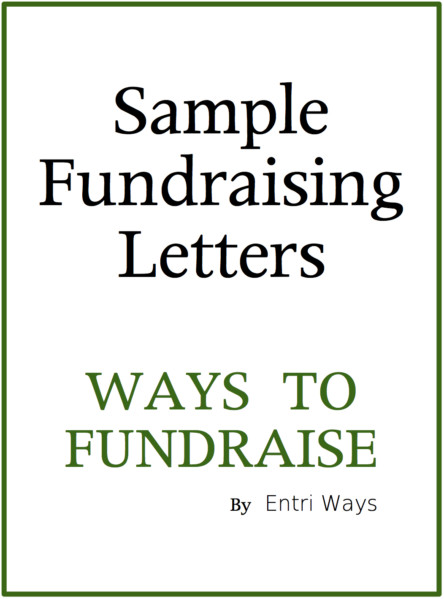Kids love games. Over the years, the games may have adapted to the new generations, but games have never gotten old. That’s why a Gaming Night Fundraiser, where participants play video games and old fashioned board games in an organized, supervised environment, makes a perfect school fundraiser or family fun event.
Planning a Gaming Night Fundraiser
Planning a gaming night fundraiser does not have to be overly complicated, but the types of game(s) you choose to play and your expected participants will determine how you structure the event.
.
Choose The Game(s)
Board Games: Checkers, Scrabble, Connect Four, Pictionary, (homemade) Trivia, and Sorry! are all fun games that elementary school students enjoy. For middle school students, you can increase the level of difficulty with game like Chess, Backgammon, and Trivial Pursuit.
Floor Games: Corn Hole, Toss Across, Basketball Free-throw, Super-sized Jenga, Twister, Super-sized Chess, and Super-sized Tic-Tac-Toe are more fun games for elementary school students.
Video Games: Playstation, xBox, Wii, and Nintendo Switch are currently the most popular video gaming systems. Choose video games with an appropriate “E” (for Everyone) rating.
.
The teachers may already have most of the board games you need. Ask parents to lend their video game systems and games for the evening. Be sure to label each item withe the owner’s name, phone number, and email so that you can return them after the event. During the even, be sure to provide adequate adult supervision at each system to ensure none go missing.
If you prefer a night of all video games but this will require several systems going at one time. You could offer a video game night where you play all Mario Brothers games. The ages of the students will determine exactly which games you choose.
Choose a set of games that players can choose from to challenge eachother. Or, with a player-elimination type of play where winners proceed on to the next round, clearly identify which game is played in each round.
.
Types of Play
A Gaming Night can be planned as just a family fun event or as a serious tournament. The structure of the event will determine which games you choose to play. Decide ahead of time if players will play individually, in pairs, or as small groups. Here are a few examples:
Open Play: If the purpose of the event is for an evening out just to play games, set up several “stations” around the room and let players choose the game(s) they’d like to play. Have sign-up sheets at each station so players continuously rotate and share the games. Charge an all-in entry fee of $10 or $1.00 per player for each round of play. Small prizes (i.e. candy, trinkets can be given to the winner of each game).
Round-Robin Tournament: An other alternative is that of a round-robin style tournament. A round-robin is a type of group tournament in which each participant plays every other participant an equal number of times (Ref. Wikipedia.com). Chess tournaments are organized in a round-robin format. Here, each player faces every other player once as white chips and once as black chips. Sports leagues are organized in a double-round robin format in which each team plays all others in its league twice (once at home & once away).
Total Elimination Tournament: In a total elimination tournament, the the winner of each round proceeds on to the next round until there are just two players/teams remaining to play the final game. Have several games taking place simultaneously to allow several players to participate and keep the evening moving.
.
Making Money
The way you’ll make money from a gaming night is to charge a fee to participate. There are a few different ways this can be done:
Tournament Fee: In a Tournament, charge an participation fee of $5 to $20 to play several rounds of a game throughout the event.
Open Play Fees: In an Open Play gaming event, players purchase a ticket at the door to have access to all games. Charge about $5 or $10 per person or $20 per family.
Also, charge the spectators a small ($1-3) admission fee to view the games.
.
Sell Food, Drinks, and Raffles
As with any event that generates an audience, add value to the event by selling other items as well:
Drinks: Soda, water, and coffee. A case of water (24 count, 16oz) costs approximately $5.00/case ($0.21/bottle). These can be resold for $1.00/bottle; a profit of $18.96/case for your school.
Candy & Snacks: Candy bars and snacks (chips, popcorn, cookies) can be purchased in bulk from a wholesale warehouse (BJ’s, Costco, or Sam’s Club) and re-sold for a small profit. Or, ask a few parents to donate baked goods.
Dinner: Pizza and hotdogs are easy for families to eat as they watch the games and the kids enjoy them.
Raffle Tickets: Raffle off a few of the games at the end of the night. Perhaps a parent has a Playstation they no longer use at home and are willing to let you raffle it off.
Local businesses may be willing sponsor the event and donate these food items.
.
Ticket Sales
Sell tickets for two weeks in advance. Set up a table in the school lobby where students can purchase tickets before and after school for at least a week prior to the event. Set up a sale table in the cafeteria during lunch and at school sponsored events (sporting events, dinners, craft fairs, etc.). The sale table can run by a few, responsible older students. It’s great experience for them!
With an “Open Play” event you can sell tickets at the door also since there’s no set gaming schedule. With a “Tournament”, ask players to pre-register so you can create a gaming schedule, just as a sports teams coordinates their schedule prior to the season beginning.
Since you don’t ever want to turn anyone away from a fundraising event, create the written schedule in a way that allows you to add additional players that arrive that evening.
Charge an entrance fee to anyone that wants to observe the games (i.e. parents).
Print tickets on a home computer on colored bond paper or card stock. Be sure to number them. As you distribute tickets for sale, keep a written log of which ticket numbers are given to who to sell so that all sales can be accounted for.
Encourage every student to purchase a ticket. Encourage parents to purchase tickets themselves and to sell to their family, friends, and co-workers.
.
Create a Scoreboard
Track the win-loss record of each player on a scoreboard. A large chalkboard, whiteboard, or even poster paper hung on the wall works well. Set a time limit per game to keep the evening running on schedule.
.
Game Rules
Print out Game Rules. Give a copy to every tournament participant when they register and display a copy of the rules in a visible location in the room. Here’s an example of some game rules:
Players should be familiar with how to play the game ahead of time.
Each player is allowed _____ minutes to make their move. Once a move is made, they must reset the timer which begins the next player’s turn.
The clock can be paused for 15 seconds if a player asks a tournament volunteer for clarification on the rules.
If you touch a board game piece, you must move it. If you are adjusting a mis-aligned game piece you must announce to the other player that you are “adjusting” not “moving” prior to touching it.
Spectators should not interfere with a game in progress.
At the conclusion of the game, record the results and report them to the tournament volunteer.
Prior to leaving the game table, the players should reset the game for the next set of players.
All cell phones should be turned off while in the tournament room.
No food or drinks are allowed at a game table.
Be kind & courteous. No foul or insulting language.
Be a humble winner. Accept a loss as a game well-played.
.
Prizes
Give out small prizes at the end of each round to keep all players interested and motivated. Give out the major prize in the final round of play. The prizes could be either purchased or donated items. A few ideas…
Cash: A portion of the earnings (ie. 25% of ticket sales, 50% of bake sale table sales).
Gift certificates to local stores (toys, restaurants, electronics, gaming, school clothing, books).
Gift certificates for entertainment (movies, theme parks, sports events, bowling, arcades)
School Lunch: Ask the school cafeteria to donate a few free lunches. Then print tickets you can give away.
Lunchtime Snacks: Purchase a few boxes of popsicles, fudgecicles, or ice treats, keep them in the cafeteria freezer and print tickets you can give away for these lunch snacks. Let cafeteria staff know they are there and can be redeemed after the event.
School Incentives: Talk to the school principle about printing tickets for prizes such as homework passes, school photographer for a day, or gym teacher for a day. Be creative!
,
Venue
A school cafeteria is the perfect venue because there are plenty of tables and chairs. If you plan to host the event at another location, ask to have the hall donated or sponsored.
A Thursday, Friday, or Saturday evening works well if your event will last just a few hours. If you plan to host an all-day tournament, plan on Saturday or Sunday.
.
Event Day
Arrive at the hall early with your committee members to ensure to set up:
Set up tables for ticket sales (entrance) and food & drink sales. Have a cash box with change and small bills on-hand.
Set out the games on the tables. Set up video game systems and chairs for each.
Hang a scoreboard to track tournament play and winners. Have markers / chalk on-hand.
Set up a sponsor sign in a visible location..
Be sure there are plenty of trash receptacles.
Place a timer at each game table.
Have a camera and film on-hand to take pictures.
As the event organizer, you should designate all jobs to your volunteers ahead of time so that you are available to roam the room throughout the evening, monitor supplies, and attend to any major issues that arise.
.
Get our PDF file Sample Fundraising Letters that includes sponsor & thank you letters for this fundraiser.
Click the image to receive access to:






Leave a Reply